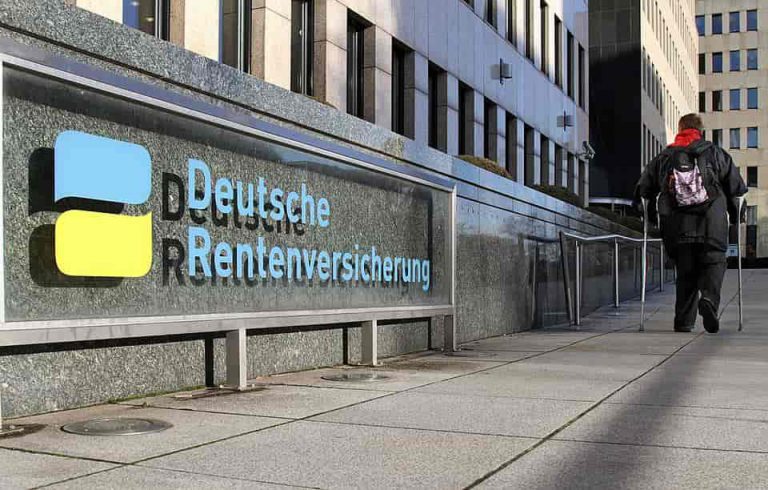Germany is dealing with a serious shortage. There are some plans though on how to address this problem. The new Skilled Immigration Act in Germany goes in this exact direction. In theory, this new law facilitates the approval of visas for qualified professionals. Especially Non-EU countries benefit from this as they have it easier now to move and work in Germany.
Germany, Demography and Labor Shortage
The German economy used to be the powerhouse of Europe but dark clouds are forming in the sky. And this is not just regular economic volatility. In general, Germany lacks qualified professionals to keep the economy running.
For instance, around 1.2 million positions are currently vacant and can not be filled with the right personnel. Moreover, the demographic change Germany is going through will increase the severe labor shortage.
Therefore, the Skilled Immigration Act reduces existing barriers to the labor market in Germany. That is good news for skilled workers from countries outside the EU. Below you can find the updates to the Skilled Immigration Act.
What has changed, what is new?
The new legislation is already in effect. March 1, 2020 marked the day of the introduction for some relevant updates:
Who counts as skilled worker or specialist?
Overall, a major update constitutes the revised definition of who qualifies as a skilled worker or a specialist in Germany. Until recently, this definition was rather narrow and only included professionals with a university or college degree.
However, people with completed vocational training were excluded. The updated law now does include this group of people with non-academic education in the definition of a skilled worker.
Lift of restrictions on employment
In the past, professionals from non-EU countries with only vocational qualifications were only meant to immigrate into Germany in order to fill severe gaps in the labor market.
The new Skilled Immigration Act in Germany improves the situation of these people and relaxes the requirements. In detail, this means that anybody with a recognized qualification can work in any field related to their degree. This explicitly includes vocational and non-academic education.
Less bureaucracy, more flexibility
In addition, the new law simplifies another important part of immigration policy in Germany. Usually, non-EU citizens were restricted in the job they wish to take up. More importantly, the employer needed to comply with the Federal Employment Agency and prove that no qualified German or EU citizen was available to fill the position.
This “resident labor market test” prioritizes domestic workers. As of March 1st 2020, this policy does not apply anymore for skilled occupations. Still, the German government reserved the right to reintroduce it at its will, if the labor market requires adjustments.
What are the new requirements to start working in Germany?
There are still a few requirements that skilled workers and specialists need to meet before being eligible for a visa which allows them to work in Germany:
Standing Job offer
No matter if you have a university degree or a non-academic qualification, you must still show a solid job offer of an employer in Germany or already signed employment contract before entering the country.
Qualification and Recognition
Generally, you must provide proof of your relevant qualifications. In case you completed a vocational training, it needs to be at least a two year program. Plus, Germany must officially recognize the obtained qualification as similar or equal to a corresponding domestic qualification. Either your institution or the German Labor Ministry portal can help you with any doubts.
Special treatment for IT specialists
Commonly, IT professionals are in high demand. Thus, the law handles them a bit differently. If IT professionals can prove reputable working experience for already 5 years, they can come to Germany without any institutional qualifications.
Job Seekers and Residence Permit
Do not worry if you have not signed and employment contract yet or no job offer. You can still enter Germany which is new. Keep in mind though that you still need proof of your professional training and qualifications as outlined above. After that, you can officially search for employment for a period of six months.
The Germans need to recognize your qualifications and you need to speak German. In this regard you need to produce evidence of good German language skills (level B1). Also, since you will not receive help from the state, you need enough money to support yourself during your job search. In order to support yourself, you can legally work 10h maximum per week on a trial basis. This can be an internship, a temporary position, or a probation based agreement.
Older specialists and skilled workers (45+)
Foreign nationals who possess special skills but are aged 45 or more have a different status. Firstly, they have a minimum earning requirement of 3.685€ per month in Germany in order to be eligible. They can improve their situation and support themselves with sufficient funds or pension payments from abroad.
How long can I stay?
Congratulations if you have an employment contract or a job offer. This qualifies you to receive a residence permit for as long as your contract lasts or at least four years. After that period, you qualify for an application for a permanent residence permit.
As mentioned before, specialists looking to leverage the Skilled Immigration Act in Germany to look for a suitable position can stay for 6 months.
What about the family?
Skilled Workers often have families and the Immigration law covers this part extensively. So yes, families can move with specialists under certain circumstances. For example, they need to be able to survive financially and be living in decent conditions regarding space. However, bear in mind that the family is not automatically eligible to receive state benefits or social security funding.
Does it work with low qualifications?
The Skilled Immigration Act is designed to make Germany more attractive for high performing professionals with important skills in the 21st century. Unfortunately, the law explicitly does not include people below certain qualification levels. This creates a minimum requirement of completed vocational training to fall into the right category.
Nevertheless, a work contract or job offer from Germany does allow you to apply for a working visa. In this case, the employer bears the responsibility to train the individual accordingly. Jointly, they must produce a professional-level certificate within 2 years to meet legal requirements.
Conclusion
As many other laws, the Skilled Immigration Act in Germany creates winners and people who benefit less. Specialists with vocational qualifications will step up to the same level of university graduates. Now, they can enter the country to work, or just search for work. That’s something which was only possible in professions with a severe shortage in the past.
The two most critical parts of the new law however are the German language requirement and the recognition of qualification. Germany’s system of vocational training is rather unique in the world and sometimes this poses a challenge. For example, proving that your foreign degree is as good as a German one in a unique system is not always an easy task.
Plus, not everyone speaks German. That’s why the Skilled Immigration Act is one step in the right direction. But Germany is still far away from merit based immigration systems found in Canada or Australia.











